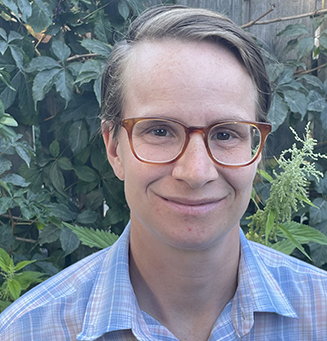Improving health care for trans and nonbinary individuals
Western researchers and nurse practitioner at Women’s College Hospital collaborate to identify and eliminate barriers that trans and non-binary people face in the health care system

At a glance
Issue
Transgender, gender-diverse and non-binary individuals are becoming more visible in Canada. While they have received increased recognition and acceptance in recent years, these individuals continue to face barriers in many areas of society – particularly in accessing high quality, appropriate health care.
Research
Two researchers at Western University are collaborating with a nurse practitioner at Women’s College Hospital to explore trans-related health concerns and the barriers that trans and non-binary individuals face when seeking health services. This includes the challenges encountered by individuals who undergo transition-related surgery in finding proper post-operative care.
Impact
This research will support the development of an inclusive and accessible healthcare system where trans and non-binary individuals receive high quality care that addresses their needs.
Related stories
In recent years, the population of transgender, gender-diverse and non-binary individuals within Canada has become much more visible. Though the recognition of this community has increased, trans people still experience serious barriers in their daily lives — particularly in the area of health. Whether it be physical or mental, a lack of accessible and quality health care is a common experience among trans individuals. This problem is partly due to the knowledge gaps that remain about trans health and trans experiences in Canada, with unanswered questions about post-transition surgery care and complications.
Three individuals have devoted themselves to tackling these issues. With the aid of CIHR funding, two researchers at Western University — Dr. Greta Bauer and Dr. Jessica Prodger — along with collaboration from Emery Potter, a nurse practitioner, are exploring trans-related health concerns and working towards improving trans health and the quality of their care.
Listening to trans voices

For over a decade, Dr. Greta Bauer, a Professor at Western University, has been on the forefront of addressing trans health issues and rights in Canada. Currently, Dr. Bauer leads Trans PULSE Canada, a community-based survey of trans and non-binary people aged 14 and older across Canada. What started out as a provincial survey has grown into a national one with data on nearly 3000 people.
With nine different priority population groups, Trans PULSE Canada explores the different intersections within trans and non-binary communities and their health impacts. Currently, Dr. Bauer’s focus is on sex worker health and safety. Thanks to the study, Dr. Bauer and her team have captured specific experiences and community expertise and put forth evidence in support of changing federal laws surrounding sex work. They are doing similar work with other priority populations, such as trans and non-binary individuals, to improve access to primary care, emergency care, mental health care, and gynecological care.
In addition to Trans PULSE Canada, Dr. Bauer heads Trans Youth CAN!, a cohort study of younger groups (puberty to age 15) within trans and non-binary communities through 10 different clinics across Canada. By analyzing the data from this group, Dr. Bauer’s study has been able to challenge ideas that drive attitudes and policies against trans youth, such as the idea that there are more trans youth accessing medical care today due to social exposure or its “trendiness” rather than the reality that attitudes are more open towards transitioning or that there’s more protection now.
Whether studying trans youth or the older groups, Dr. Bauer’s research makes one thing clear: there is a great need to improve trans health care, and beyond this, its accessibility. “Even when you have good providers, well-intentioned people trying to do good things, there are barriers that are built into the system as well as a lot of anticipated discrimination because of people’s own experiences and because of what they know from [the] community,” remarks Bauer. “So, access to health care is problematic across the community, and even more so within particular groups within the community. And so that’s what we’re trying to identify.”
Navigating health care barriers

Emery Potter is collaborating with Dr. Bauer on her projects. As a nurse practitioner who works in the transition-related surgeries program at Women’s College Hospital (WCH), Potter brings first-hand experience with helping trans and non-binary individuals navigate the health care system. They point out that the system is often difficult for not only the patients, but also health professionals to maneuver.
“Our whole health care system was built on a binary,” explains Potter. “Even the way that physicians bill, many procedures are connected to an F or M gender marker. If the gender marker doesn’t match the one associated with the procedure, their claim will be rejected. Misgendering and deadnaming (using a person’s birthname rather than their selected name) are also often problems that trans people encounter due to the binary nature of health care. There is often no place in the Electronic Health Record to put a name different than the legal name.”
Potter also provides some insights into the difficulties that trans people face during and after receiving gender-affirming surgeries. They point out that accessing these surgeries in the first place is difficult, and many individuals have to travel long distances to receive their care. Furthermore, barriers for trans people persist even after undergoing surgery. When an individual has a complication or an issue that develops or even a question, it can be incredibly difficult to find someone who has the knowledge to provide the proper care. Physicians and other health professionals may be reluctant to accept a trans individual as a patient because they may not feel they have the proper expertise to address their needs and take care of them.
At the WCH, Potter’s team offers both gender-affirming surgeries as well as post-operative care. Primary care providers or emergency departments who lack the knowledge on how to care for a trans patient can refer them to the clinic at WCH. To date, Potter has seen more than 300 unique patients in the clinic. Still, there is a lack of research in this section of health care, and even more so a lack of accessible information. “I run into that problem all the time,” says Potter. “We run into new complications and issues happen where there is no expert or consensus on how to manage them.”
Understanding the neovagina

In addition to helping with Dr. Bauer’s work, Potter is also contributing to the TransBiota research project led by Dr. Jessica Prodger, an Assistant Professor at Western University. Thanks to Dr. Prodger’s TransBiota project, more is being understood about the neovagina and the specific health complications that can follow a vaginoplasty surgery, an operation in which a vagina is made from penile tissue. Unlike the natal vagina of cis females, very little is known about the microenvironment of neovaginas and the kinds of bacteria that live there. Since most health practitioners only have knowledge about natal vaginas, applying the same diagnoses and treatments to neovaginas can result in ineffective treatments and untreated issues.
Dr. Prodger’s team is working on the hypothesis that the bacteria living in a neovagina are different than a natal vagina, and therefore require different treatment. By analyzing the neovagina on a microstructural level, her team is working towards identifying the “good” bacteria and the “bad” ones — in other words, those that are necessary for the health of a neovagina, and those that are causing complications. “Neovaginas are functionally very similar to the natal vagina, but are made up of different cells,” Dr. Prodger explains. “So it is very unlikely that we will find the same lactobacilli and anaerobes living there as you would a natal vagina. It would be like taking a swab of skin and expecting to find vaginal bacteria.”
This research project relies on trans and gender-diverse individuals to collect samples of their genital bacteria in their home using a provided study kit, and to answer questions about bothersome symptoms they have experienced and hormones/medications that may influence their genital bacteria. With this data, Dr. Prodger will be able to help inform new protocols for diagnosing neovaginal issues, and better inform behavioural practices such as douching, lube use and other vaginal practices.
Moving forward
These research projects and the insights that they are producing are vital to improving the health of trans people and to creating a trans inclusive health care system, which, according to Emery Potter, would provide access to the appropriate care that trans people need when they need it, and that care is gender-affirming and trans inclusive. It would use their names and pronouns and would have all the resources that they need. In such a system, care providers would be knowledgeable, have a good background on trans health and trans care, and have the information that they need to provide high quality and accessible care.
The research is an essential step to building the knowledge needed to make tangible changes and create a responsive, trans inclusive, health care system.
- Date modified: